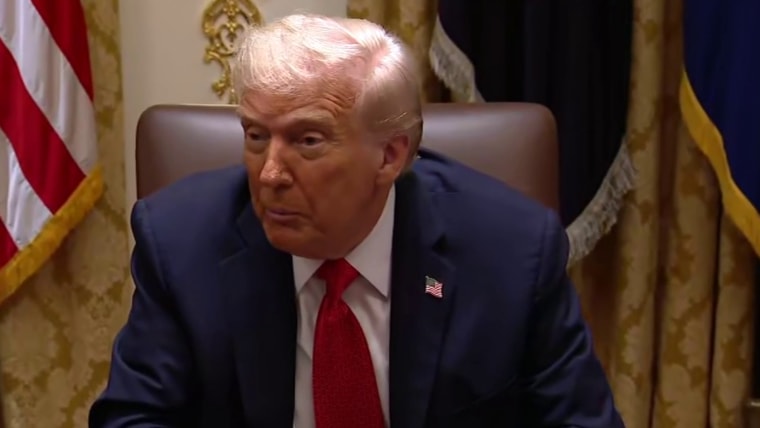Vance expresses optimism and preaches patience in Israel as ceasefire worries grow

Vice President JD Vance expressed cautious optimism Tuesday that peace will hold between Israel and Hamas despite recent violence that threatened the fragile U.S.-brokered ceasefire.
“What we’ve seen the past week gives me great optimism the ceasefire is going to hold, and if we get from where we were a week ago to a long-term, durable peace between Israel and Gaza, there are going to be hills and valleys,” Vance said at a news conference to announce the opening of a civilian military cooperation center in southern Israel.
“There are going to be moments where it looks like things aren’t going particularly well,” Vance added. “Can I say with 100% certainty that it’s going to work? No, but you don’t do difficult things by only doing what’s 100% certain. You do difficult things by trying. And that’s what the president of the United States has asked us to do.”
Vance’s trip to Israel comes at a fraught moment. The Israel-Hamas ceasefire negotiated this month by President Donald Trump has been followed by both sides accusing each other of breaching the truce, Israeli strikes and a diminished Hamas attempting to reassert its authority over the enclave.
Vance accused American media of overreacting to the setbacks.
“I want to say that there is this weird attitude I’ve sensed in the American media and the Western media, where there’s almost this desire to root for failure — that every time something bad happens, and every time there’s an act of violence, there’s this inclination to say, ‘Oh, this is the end of the ceasefire, this is the end of the peace plan,’” Vance said. “It’s not the end. It is, in fact, exactly how this is going to have to happen when you have people who hate each other, who have been fighting against each other for a very long time. We are doing very well. We are in a very good place.”
An enduring ceasefire is key to Trump’s ambitions of winning the Nobel Peace Prize, making Vance’s efforts this week to ease tensions and project confidence potentially consequential to the legacy of the man he will likely run to succeed in 2028. Hovering over the news conference was a Tuesday morning Truth Social post by Trump, who wrote that Middle East allies “would welcome the opportunity, at my request, to go into GAZA with a heavy force and ‘straighten [out] Hamas’ if Hamas continues to act badly, in violation of their agreement with us.”
“There is still hope that Hamas will do what is right,” Trump added. “If they do not, an end to Hamas will be FAST, FURIOUS, & BRUTAL!”

Asked about the president’s posture, Vance reinforced that “very bad things are going to happen” and that Hamas would “be obliterated” if it does not cooperate with terms of the ceasefire.
“But I’m not going to do what the president of the United States has thus far refused to do, which is put an explicit deadline on it, because a lot of this stuff is difficult,” Vance said. “So my point is, I don’t think it’s actually advisable for us to say this has to be done in a week, because a lot of this work is very hard.”
Vance added that he believed Middle East allies, including “our Israeli friends,” are showing a “certain amount of impatience with Hamas.”
“But we’re going to keep on working at this process,” Vance said, “and we’re going to keep on trying to bring the deceased hostages home, but also make sure that all Gazans are able to live in a prosperous and safe place.”
Vance was joined Tuesday by Steve Witkoff, Trump’s special envoy to the Middle East, and Jared Kushner, the president’s son-in-law. Both played key roles in negotiating the ceasefire, while Vance has been dispatched to demonstrate the administration’s commitment to it.
“I want to echo what the vice president said about how a lot of people are getting a little hysterical about different incursions one way or the other,” Kushner said. “But what we are seeing is that things are going in accordance … both sides are transitioning from two years of very intense warfare to now a peacetime posture.”
Vance described his visit in part as a fact-finding mission that will help inform the U.S. continued role in the process rather than a reaction to the recent violence that has erupted.
“It’s one thing to read about it, it’s one thing to talk with Jared and Steve on the phone about what’s going on on the ground,” the vice president said. “It’s another thing to actually shake somebody’s hand, to look them in the eye and to understand what are the challenges, what are the things they need from me?”
